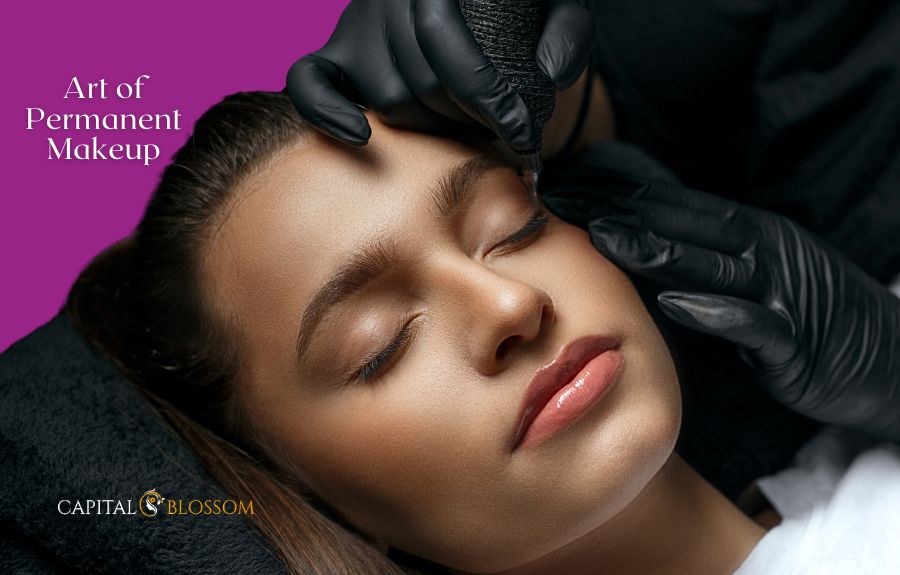
Mastering the Art of Permanent Makeup
The role of a permanent makeup artist is becoming increasingly sought after as people look for long-lasting beauty solutions. A permanent makeup artist uses advanced techniques to apply pigments to the skin, enhancing features such as eyebrows, lips, and eyeliner. This article explores the journey to becoming a skilled permanent makeup artist, including necessary training, essential skills, and career opportunities in the beauty industry.
Understanding the Role of a Permanent Makeup Artist
What is Permanent Makeup?
Permanent makeup, also known as micropigmentation, involves the application of pigments into the dermal layer of the skin to enhance facial features. Popular procedures include:
- Eyebrow enhancement – Creating fuller, more defined brows.
- Eyeliner application – Defining the eyes with precise liner.
- Lip pigmentation – Adding color and definition to the lips.
Benefits of Permanent Makeup
Permanent makeup offers several benefits:
- Time-saving – Eliminates the need for daily makeup application.
- Long-lasting results – Provides a semi-permanent solution lasting for years.
- Natural enhancement – Subtly improves facial features.
Training and Certification
Essential Training Programs
To become a permanent makeup artist, specialized training is required. Accredited programs provide comprehensive courses covering the fundamentals of micropigmentation. Training typically includes:
- Theoretical knowledge – Understanding skin anatomy, color theory, and application techniques.
- Practical experience – Hands-on practice with live models or practice skins.
- Safety and hygiene – Learning about sterilization, infection control, and sanitation practices.
Obtaining Certification
After completing a training program, obtaining certification is crucial. Certification demonstrates your expertise and commitment to industry standards. It usually involves:
- Examinations – Written and practical exams to assess knowledge and skills.
- Continuing education – Ongoing education to stay updated with the latest techniques and trends.
Developing Essential Skills
Artistic Skills
A successful permanent makeup artist needs a strong sense of aesthetics and detail. Key artistic skills include:
- Color matching – Choosing the right pigments to complement a client’s skin tone.
- Symmetry and balance – Creating symmetrical and balanced enhancements.
- Precision – Applying pigments with accuracy and control.
Technical Proficiency
Technical skills are vital for performing high-quality procedures. These include:
- Tool handling – Mastering the use of micropigmentation devices and needles.
- Skin type knowledge – Adapting techniques based on different skin types and conditions.
- Problem-solving – Addressing issues that arise during the procedure.
Interpersonal Skills
Building strong client relationships is essential. Important interpersonal skills include:
- Communication – Clearly explaining procedures and managing expectations.
- Empathy – Understanding and addressing client concerns and preferences.
- Professionalism – Maintaining a professional demeanor and ensuring client comfort.
Building a Portfolio and Clientele
Creating an Impressive Portfolio
A well-presented portfolio is crucial for showcasing your work. Tips for a strong portfolio include:
- High-quality photos – Use clear, well-lit photos to highlight your work.
- Before and after images – Show transformations achieved through your procedures.
- Variety of examples – Include different procedures to demonstrate versatility.
Marketing Your Services
Effective marketing strategies can help attract and retain clients. Consider the following:
- Social media presence – Utilize platforms like Instagram and Facebook to share your work.
- Client testimonials – Encourage satisfied clients to leave reviews and share their experiences.
- Networking – Attend industry events and collaborate with other beauty professionals.
Career Opportunities
Employment Options
Permanent makeup artists can work in various settings, such as:
- Salons and spas – Offering services in established beauty and wellness centers.
- Medical offices – Collaborating with dermatologists or plastic surgeons.
- Freelance – Providing mobile services or working from a home studio.
Career Growth
Opportunities for career advancement include:
- Specialization – Focusing on specific procedures like scalp micropigmentation or medical tattooing.
- Teaching – Becoming a trainer or instructor in permanent makeup.
- Business ownership – Opening your own salon or studio.
Conclusion
Becoming a successful permanent makeup artist requires dedication, training, and a keen eye for detail. By developing essential skills and building a strong portfolio, you can create a rewarding career in the beauty industry. If you are considering a career in permanent makeup or need professional services, contact Capital Blossom Day Spa. Our experienced team is ready to help you achieve your beauty goals. Call us today to schedule an appointment and discover the transformative power of permanent makeup!